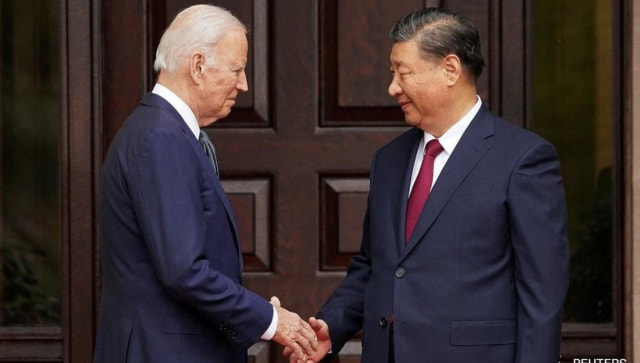
The Biden administration was concerned that tensions between the US and China would worsen as a result of the election, transition, and new government Image Courtesy Reuters
After voters in Taiwan rejected China and awarded the ruling party a third term in office, US President Joe Biden declared on Saturday that the US does not support Taiwan’s independence.
Earlier in the day, Lai Ching-te, the presidential candidate of the ruling Democratic Progressive Party (DPP) in Taiwan, emerged victorious, vehemently rejecting Chinese attempts to oust him, and promising to both defy Beijing and pursue dialogue.
The United States has long maintained that it opposes Taiwan issuing a formal declaration of independence from China, having moved its diplomatic recognition from Taipei to Beijing in 1979. It does, however, continue to have informal ties with the self-governing island and continues to be its main source of support and weaponry.
Related Articles

China responds to US weapons sales to Taiwan, sanctions 5 American defence entities

US does not support Taiwan independence, says Joe Biden after crucial polls
Beijing believes that Lai may declare the foundation of a Republic of Taiwan, which he has stated he will not do. Beijing has never renounced the use of force to bring Taiwan under its rule.
Biden has already angered the Chinese government by seeming to depart from the US’s long-standing stance of “strategic ambiguity” and hint that the US would defend the island if it were attacked.
His remarks on Saturday seem to be an attempt to reassure China.
Since hosting its first direct presidential election in 1996—the result of decades of struggle against authoritarian rule and martial law—Taiwan, which borders China, has been a democratic success story.
Congratulating Lai Ching-te on his win, U.S. Secretary of State Antony Blinken declared that the US “is committed to maintaining cross-strait peace and stability, and the peaceful resolution of differences, free from coercion and pressure.”According to him, the United States is eager to collaborate with Lai and Taiwan’s political leaders to further their “longstanding unofficial relationship, consistent with the U.S. one China policy.”
The Biden administration was concerned that tensions between the US and China would worsen as a result of the election, transition, and new government.
In an effort to improve ties with China, Biden has agreed to resolve security-related disagreements with Chinese President Xi Jinping during a November visit in California.
According to two senior government officials, Taiwan anticipates that China would try to exert pressure on its future president following the vote by, among other things, holding military drills close to the island this spring. China has never denied the right to use force to annex Taiwan.
According to a senior Biden administration official, Biden intends to send an unofficial delegation to the self-governing island as a show of support for the government.
The official said the names are still being decided, but it is probable that some former high-ranking American officials will be in the trip. Comparable delegations have been dispatched.
President Tsai Ing-wen of Taiwan and then-President-elect Donald Trump had their first phone conversation in 2016, which infuriated China. This was the first time since President Jimmy Carter had transferred diplomatic recognition from Taiwan to China in 1979.
(With agency inputs)

